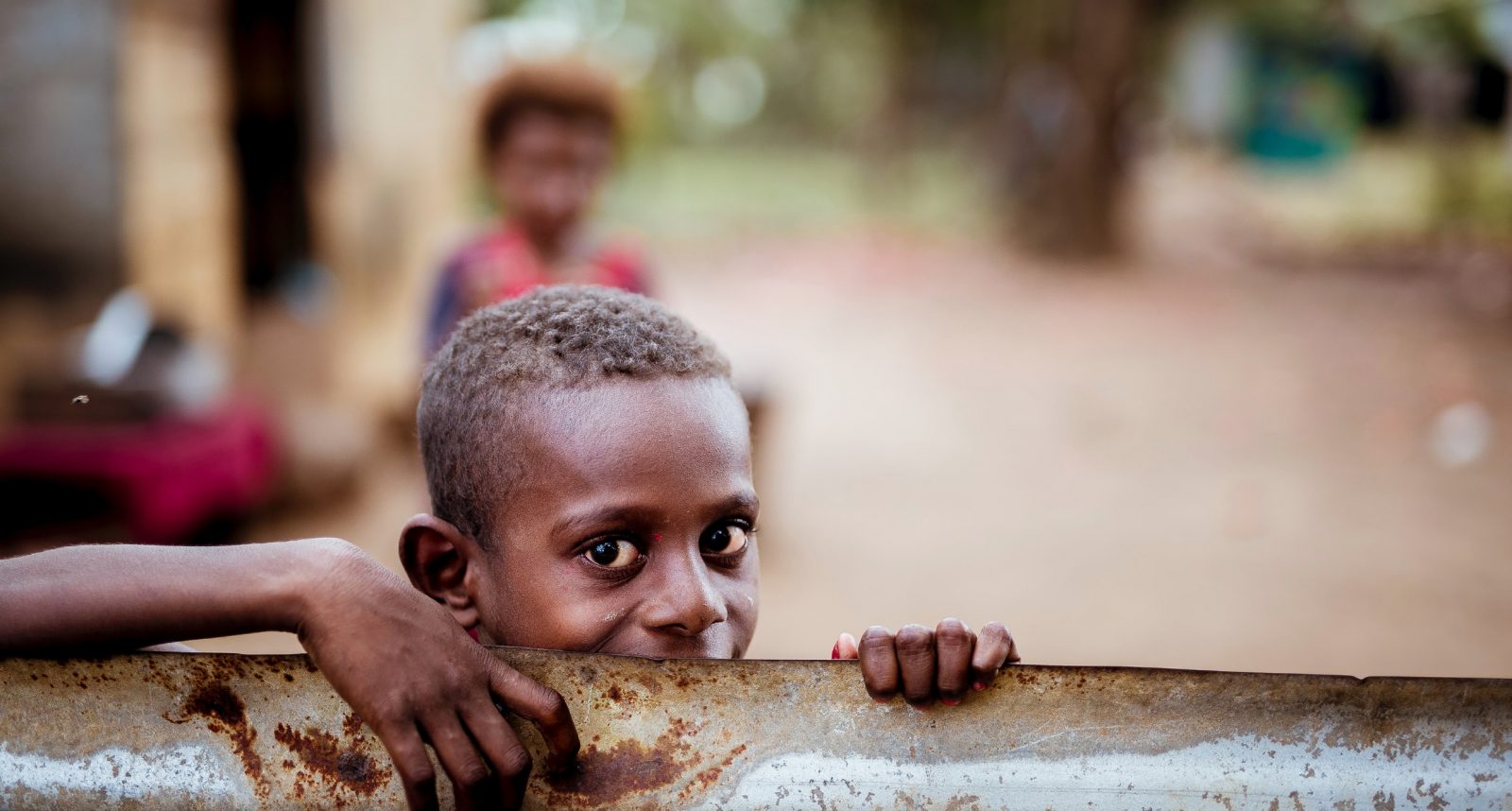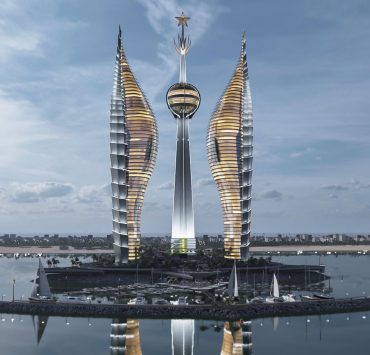THE INVISIBLE CITIZENS

Abel Merawi is from Addis Ababa. He is an English…
A CASE FOR THE ONES WE CHOOSE TO IGNORE
The daily hustle we all endure ends when dusk closes in, and we retreat to whatever shelter we call home. But, amongst us are the unfortunate ones who remain in the unforgiving streets, for they have nowhere to go and no place to call home. These are the invisible citizens of the street. In the safety of our homes, we are oblivious to their existence. After we closed the gates, we also veiled our imagination to external reality by dwelling on our endless personal woes. Our apathy is no wonder as our TV and phone screens orchestrate a lullaby of fairyland. Then, when the sun rises, we open our gates but our mental gateways remain locked. We move with mechanical intentionality to attend to our daily tasks or idly roam the streets. Either way, the invisible citizens are not part of our world. We brush against them as we cross paths, but they don’t disturb our peace since they are as background a reality as the inanimate objects we fail to see. The invisible street citizens extend their hand and cry out for help, but we respond in automation. With indifference, we toss them a coin or two to rid ourselves of their disturbing presence. And if we belong to the pseudo-innocents creed, for whom the world is a playground, we may even retreat in shock as if under attack. In the meantime, the street citizens remain voiceless in every realm of life.
Society at large has denied the existence of its most deserving and least protected members. Such indifference could undermine any democratic pledge since greatness connotes humanity. The Great Martin Luther King Jr. has rightly said that society is measured by the way it treats the least of its members. King reminds us, “True compassion is more than flinging a coin to a beggar; it understands that an edifice which produces beggars needs restructuring.” Verily, any social and political organization that produces and ignores voiceless and invisible homeless citizens must be reorganized. With this spirit, I hope to at least start the conversation that awakens us from our slumber and reconstruct the social evil we constructed.
Any real progress begins with identification and a proper diagnosis of the problem. This begs the question as to why we indifferently block the plight and suffering of the homeless. Perhaps the explanation of George Marshall in ‘Don’t even think about it’ serves as a starting point. He speaks of ‘meta-silence’ to explain our mental ability to silence an issue to the point of silencing even the inquiry regarding the reason for our denial and silence. He explains how this is a psychological defense mechanism of protecting our innocence because the recognition of a pressing crisis necessarily leads to personal engagement. When we see this in relation to the homeless, we silence the issue and never question ourselves because recognition challenges our minds and makes us restless unless we act constructively. In reality, protecting our innocence through the denial of suffering will only intensify it, transforming crisis into a catastrophe.
It is indeed a catastrophe when a country accommodates the co-existence of two irreconcilable lives – lives in the street and lives in a modern-day castle. Dr. Cornel West cautions us from calling it a problem, because to these invisible citizens, it is a ‘catastrophe that visited upon them’ with no fault of their own. According to a study conducted in 2020 titled, ‘Pathways through homelessness among women in Addis Ababa, Ethiopia,’ there are some 50,000 homeless people in Addis Ababa alone. About a year ago, the Ethiopian government announced that it will rehabilitate 22,000 homeless people from 11 cities in Ethiopia. The success of this attempt is questionable.
Despite the government and charitable works, the situation persists. It is a national problem that requires concerted action from each one of us. Yet it is seldom discussed as a major issue.
Our inhumane treatment of the desperate ones is proof of our morally bankrupt social, political, and personal lives. We cannot see or hear these invisible citizens of the street because we suffer from mental myopia; an insidious form of bigotry against the helpless. It blinds us from recognizing their physical pain and deafens us from hearing their mental and spiritual agony. Our top national priorities speak of this sad truth. We have created a narrow and superficial existence; our existence is truncated in ethnicity, religious sects, market values, and endorsed by media that either ignore or blame the invisible citizens.
Our identity is utterly narrow to allow humanity to operate universally, not even nationally. Such an identity leads to an apathetic forgetfulness towards the helpless street residents. We have forgotten them when we sealed our identity in ethnicity. Alas! How empty rhetoric is ethnic identity, which fails to even notice the homeless and the orphans. The failure of every ethnic group to incorporate them can only indicate that the helpless ones are without identity. What’s worse, we abandoned them as we fortified our humanity in religious sects. Every religion translates humanity into a status gained for being noble creations of the Creator. But each sect extends humanity to followers and abandons all the rest to rot in the hell of an earthly and afterlife. The academic and economic identity is no different. As we have barricaded ourselves in intellectual and trade unions, we closed the gates for identity on the very people who need recognition for existence. In the final analysis, we have made them voiceless through a political system that identifies a person only through IDs, property, ethnic identity, and the countless systematic shackles that makes them invisible citizens.
The inhumane reality we created is transformed into an acceptable social standard through the silence and utterance of the media. If there is an accord between the mainstream and Social Media, it is on the harsh portrayal or avoidance of the invisible citizens. As a rule, the media never speaks of them primarily because they are not commercially attractive. Even a magazine named ‘Justice’ never speaks of their injustice, even ‘Fortune’ and ‘Capital’ fail to mention these invisible citizens because they are unfortunate and without capital. The myopic spectrum of the media is unaware that a country that fails to identify and alleviate the plight of helpless citizens can never be just or civilized. The crime of the Medias is worst when it actually speaks of them. After we treat them inhumanely, we held phone-in radio programs where we display our audacity to judge and condemn them. We call them lazy while we are too lazy to help. We call them criminals when we are the true social criminals who extended their unfortunate lot through indifference and ostracism.
In all areas, we see a callous machine operate in the name of modernity and civilization. We have to recognize that traditional societies, at least in Ethiopia, do not produce homeless people because the strong social bond doesn’t allow it. Homelessness is dominantly a city crisis, where people are too busy with personal indulgences to the point of forgetting their social responsibility. I hope not to be a hypocritical critic who hastily condemns but never provides tangible solutions. I can only mention that this article is a beginning of a long discussion that will only end when tangible solutions are forwarded and the problem is addressed. This is the first attempt to recognize the problem and raise an agenda. I only wish to remind us that the ‘invisible citizens’ exist and deserve the dignity of life we declare as democratic citizens under the banner of human rights.
What's Your Reaction?
Abel Merawi is from Addis Ababa. He is an English literature teacher, freelance writer/reporter for Ezega.com and an Amharic-English translator and editor. He also writes for www.msingiafrikamagazine.com. You can reach him via: abelmerawi4@gmail.com
















